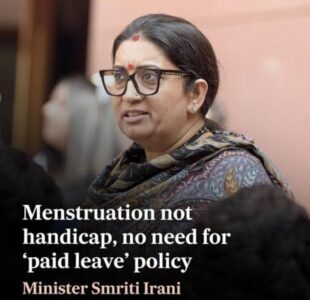Reviewing Alia Bhatt’s ‘Darlings’ with a psychological point of view.
Few days before the movie release I was thinking about how Indian society has always been Male dominated,right from the times of Ramayana to today !
Starting from Hamza’s line , “If I didn’t love you , I wouldn’t hit you ; if you didn’t love me ,you wouldn’t tolerate it.” reflects how pop culture has made people believe that Love is pain ,but at the end of the movie it’s shown how clearly its an abuse.
Shamshu’s constant support for badru right from the start when she asked her to dump hamza but she knew leaving an abusive situation was difficult ,especially when you love the abuser. Badru later realizing she didn’t need hamza to respect her what mattered was her self respect which is easier said than done.“If you can go to a restaurant or cinema alone, you can do anything in life.” Women, however, are conditioned to believe that they would rather be in a volatile, toxic relationship than be the object of society’s prying eyes. Strangely, being in an abusive marriage is still more respectable than being in none.
The director and script do well in the scenes portraying Hamza’s proclivity for sadism, his extreme conservatism and cruelty towards Badru. Hamza’s actions are convincing and the tension in those scenes is palpable, but no effort is made to throw light on the complex psychology of intimate partner violence and the social conditioning that prompts a woman like Badru to believe she can change her husband or that it is her job to make him a better person.
Instead, in a scene at a police station, when a woman asks a rhetorical question, “Why do men turn into monsters after consuming alcohol?” a policeman replies, “Because women let them,” and his statement is left hanging there without qualifiers or counterpoints, barring a glare from the woman. Real people do talk like that, because real people are mostly ignorant or indifferent to domestic violence. The let-down here is Darlings’ handling of that ignorance.
One of the defining characteristics of patriarchy is that society always finds ways to blame women for the actions of men. If he rapes a stranger, it’s her fault for wearing a short skirt. If he strikes his wife/girlfriend, she must have done something to rile him. Darlings does not suggest that Badru gave Hamza a cause, but by not addressing the policeman’s statement, it ends up playing along with those who would hold her responsible for ‘allowing’ it to happen rather than holding him squarely and entirely accountable for his crime
Violence begets violence but can revenge set you free? Who’s the real victim here — the one who fights back using questionable methods or the one who normalises abuse in the name of love?
Darlings makes a compelling case study on domestic violence.


Leave A Reply